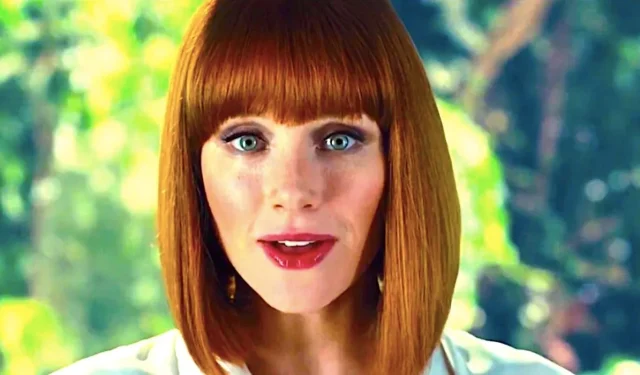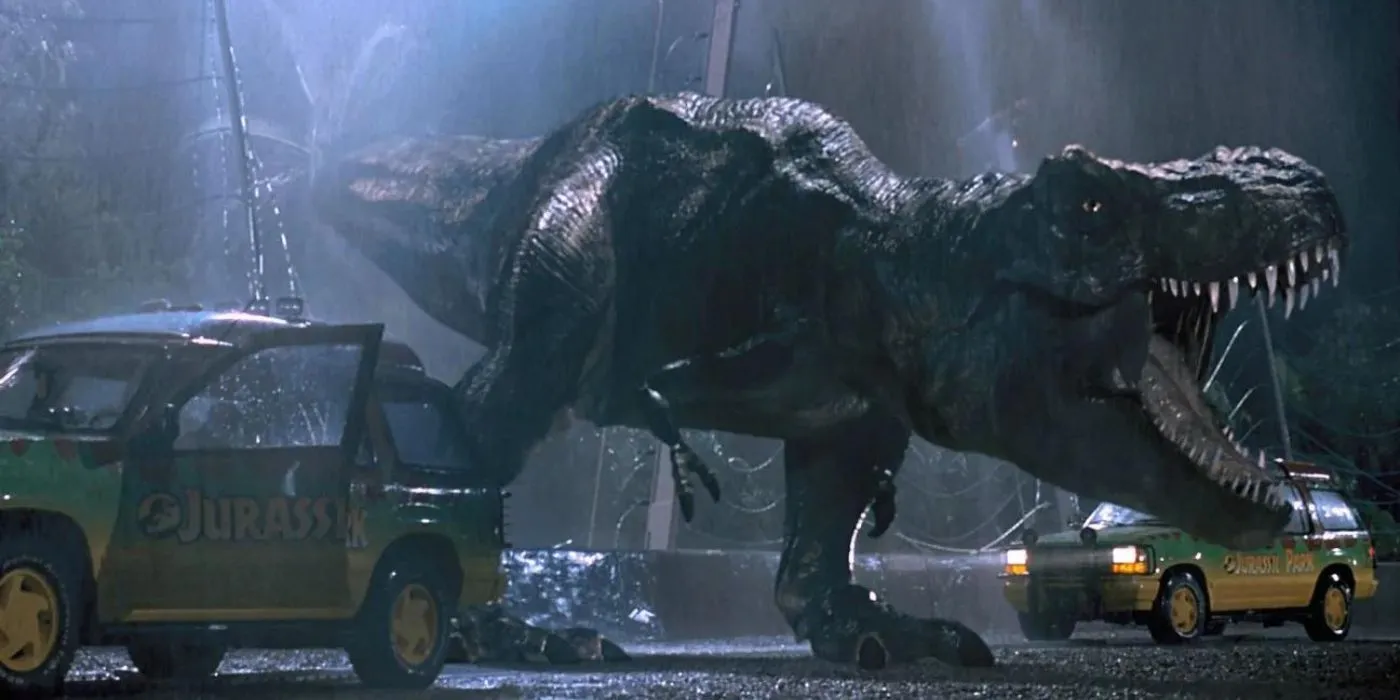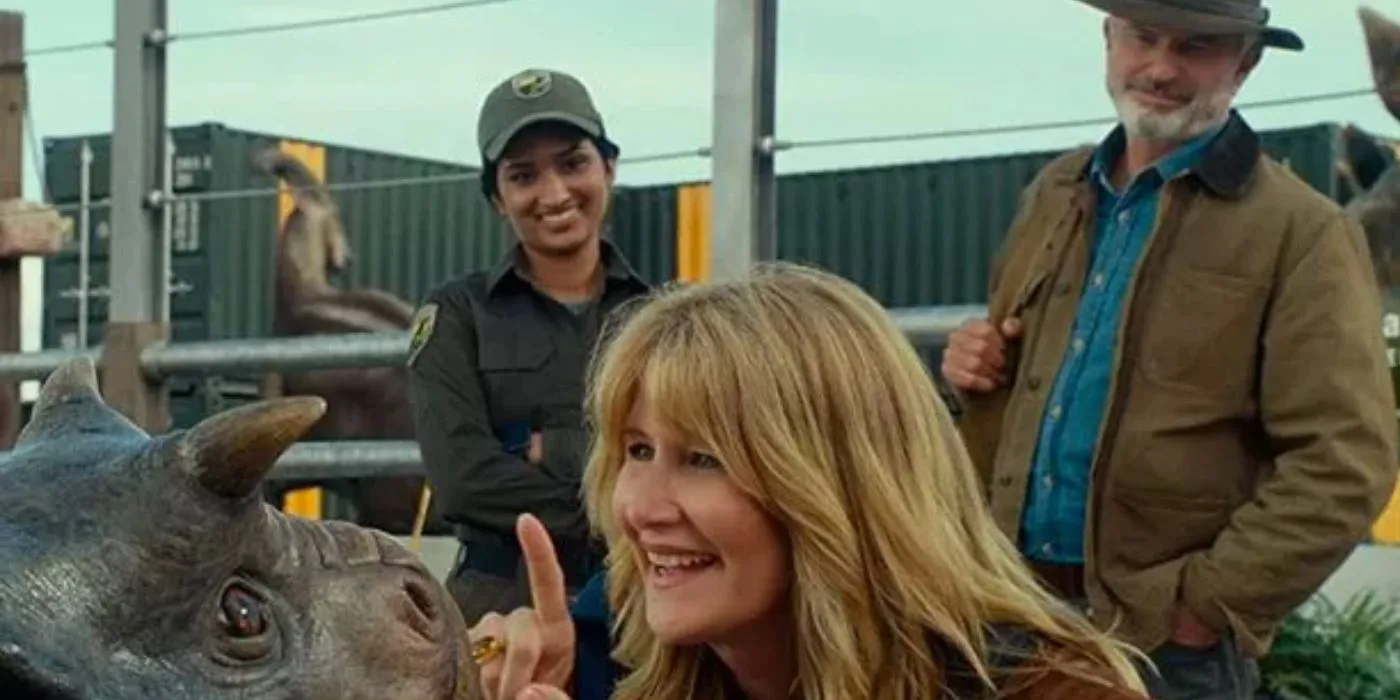
As anticipation builds for Jurassic World: Rebirth, set for release on July 2, 2025, the franchise carries the weight of its past critical reception. While it strives to revitalize the Jurassic World series, it also aims to address longstanding issues rooted in the earlier Jurassic Park sequels. Directed by Gareth Edwards, renowned for his work on Monsters and the 2014 remake of Godzilla, this installment promises a blend of epic monster action and deep character development. The film is set to introduce a stellar cast, featuring Scarlett Johansson, Mahershala Ali, and Jonathan Bailey, marking a shift away from the legacy characters that have populated previous films.
The decision not to include any previously established characters is a strategic move, especially after the swelling roster of protagonists in the last film, 2022’s Jurassic World: Dominion, left audiences feeling fatigued by nostalgia. As noted in Universal Pictures‘ synopsis, the narrative will explore a world where “the planet’s ecology has proven lately inhospitable to dinosaurs,”which promises a more grounded storyline than its predecessor.
A Declining Trend: Critical Reception of Jurassic Park Sequels
The Steady Decline of the Original Jurassic Park Trilogy

Unfortunately, Jurassic World: Rebirth will face significant challenges in improving the franchise’s critical standing. For over three decades, the Jurassic Park films have struggled to resonate with critics. A review of the franchise’s Rotten Tomatoes history reveals that difficulties with critical perception began well before 2015’s Jurassic World. Both The Lost World: Jurassic Park and Jurassic Park III struggled to capture the magic of the original film.
| Jurassic Park / Jurassic World Movie | Rotten Tomatoes Critical Rating |
|---|---|
| Jurassic Park | 91% |
| The Lost World: Jurassic Park | 53% |
| Jurassic Park III | 49% |
| Jurassic World | 72% |
| Jurassic World: Fallen Kingdom | 47% |
| Jurassic World: Dominion | 29% |
The original Jurassic Park boasts an impressive 91% rating on Rotten Tomatoes, yet the franchise’s acclaim began to wane with its first sequel. Marks dropped significantly to 53% for The Lost World: Jurassic Park and dipped to a mere 49% for Jurassic Park III. In comparison, the 2015 reboot Jurassic World earned a respectable 72%, highlighting the uphill battle that subsequent films faced.
The Pattern Continues: Declining Ratings for Jurassic World Sequels
A Troubling Trend in Jurassic World Sequels

Sadly, the initial critical revival brought by Jurassic World proved fleeting, with Jurassic World: Fallen Kingdom‘s 47% rating landing lower than even Jurassic Park III. The ambitious final twist of Fallen Kingdom, which featured dinosaurs released into the human world, created a complex narrative challenge for Jurassic World: Dominion, resulting in a critical rating of just 29%. This last film attempted to navigate these challenges by focusing on corporate machinations involving BioSyn rather than the aftermath of its predecessor’s events. This shift resulted in a disjointed experience failing to resonate with critics.
Understanding the Struggles of the Jurassic Park Franchise with Sequels
Following An Unmatched Legacy
The challenge for sequels in the Jurassic Park franchise stems from their inability to replicate the original’s narrative success. The first film, directed by Steven Spielberg, focused on a thrilling theme park overrun with dinosaurs, expertly blending horror and adventure. Subsequent films, like The Lost World and Jurassic Park III, struggled to provide fresh narrative structures without rehashing the original’s premise.
Jurassic World successfully revitalized the series in 2015 with a compelling “Theme park gone wrong”setup, tapping into themes of scientific morality and corporate greed. However, Jurassic World: Fallen Kingdom and Jurassic World: Dominion failed to continue this trajectory, resulting in convoluted stories straying from the franchise’s roots.
A New Direction: How Gareth Edwards’ Jurassic World: Rebirth Can Succeed
A Return to Simplicity
What sets Jurassic World: Rebirth apart is its departure from the established themes of the franchise. Instead of revisiting the “Theme park gone wrong”narrative, this reboot has the potential to explore darker, survival horror elements, allowing for a more straightforward and terrifying experience.
Focusing on survival horror, rather than corporate espionage or elaborate plots, could resonate with critics and audiences alike. By aligning its story with the original’s narrative simplicity, Jurassic World: Rebirth might just deliver the franchise’s first genuinely frightening experience since the 1993 original.
In doing so, Jurassic World: Rebirth has the opportunity to rejuvenate the critical perception of both the Jurassic Park and Jurassic World franchises.
Sources: Universal Pictures, Rotten Tomatoes




Leave a Reply